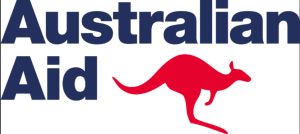Monrovia – The new year will see two new training and reporting projects kick off for Liberia’s top journalists.
 The continuing collaboration between New Narratives Liberia and the Thomson Reuters Foundation will offer journalists the chance to learn about extractives industries and gain ongoing editorial and financial support to report on the mining, forestries, oil and climate change.
The continuing collaboration between New Narratives Liberia and the Thomson Reuters Foundation will offer journalists the chance to learn about extractives industries and gain ongoing editorial and financial support to report on the mining, forestries, oil and climate change.
One project, funded by the German development agency, GIZ, will focus exclusively on mining.
The project will encourage reporters to look at the contracts, laws and regulators governing this critical sector and the impact on communities and the environment where mining takes place.
The second project, funded by the Australian government’s Department of Foreign Affairs and Trade, will look at other extractives industries such as oil and gas, forestry and the impact of climate change in Liberia.
These two projects continue on from the Thomson Reuters and New Narratives successful collaboration to report on Liberia’s oil industry over the last two years.
Reporters in that project covered all aspects of the industry in Liberia at a critical time, as oil prices plunged and major oil players began pulling out of the country.
Reporters in that project came from leading media houses including Front Page Africa, Power TV, Radio Gbargna, Okay FM, ELBC, Voice FM and Voice of Firestone.
The team hopes to attract more of Liberia’s leading media talent to take part in these next projects. The deadline for applications is January 7th. Journalists with more than two years experience are encouraged to apply HERE.
The New Narratives/Thomson Reuters Foundation model offers top reporters training and reporting grants so they can apply their training and independent reporting skills over the period of 6 months to a year. Many of our reporters will stay on longer.
Reporters work with leading editors to hone their pitches, better understand their audience, report all sides of a story given context so audiences will understand the issue and a right of reply to parties accused of misdeeds.
“This is an exciting opportunity for Liberian reporters to look deeper at the extractives industries which are the most important area of economic activity in the country and will continue to be so going forward,” says Front Page Africa senior reporter, Mae Azango, who is also the New Narratives project manager.
“That is most obvious now in the current economic downturn in the country which is partly caused by the drop in prices for iron core, gold, timber and other commodities that make up as much as 25% of Liberia’s economy.”
“We will apply the same in-depth, honest reporting approach that we take to all our projects and build on the success of our most recent reporting on Liberia’s oil industry. A lot of the same issues will be at play in other extractives areas as in the oil industry,” said Azango who has been reporting with New Narratives since 2010.
“The New Narratives/Thomson Reuters Foundation collaboration gave us the opportunity to travel all over Liberia to look at the promises of Nocal, legislators and the major oil companies. In many cases they were not living up to their promises.”
Azango was part of a 3 part Front Page Africa team that looked at Nocal-funded low cost housing units in Lofa, Nimba and Grand Geddeh counties. The team found the units in all three counties were poorly built and priced far out of the reach of ordinary Liberians.
In another memorable story Tetee Gebro visited all 17 communities of Johnsonville looking for latrines and hand pump wells that the Nocal website claimed had been donated to the community. There was no sign of the donations.
Jefferson Massah of Radio Gbarnga found Nocal had cut off funding to dozens of scholarship holders at Cuttington University. Following Jefferson’s reporting all scholarships were paid.
Massah also found Liberians in Grand Bassa and Montserrado Counties who had benefited from the Corporate Social Responsibility projects of Chevron, one of the two super major oil companies that came to explore for oil in Liberia. Poultry farmers, textile workers and schools had all been beneficiaries. With Chevron’s departure this year many are concerned about their future.
Reporting by James Harding Giahyue looked at the rise of businesses dedicated to renewable energy such as solar panel installers and the impact of climate change.
Many reporters in the project were surprised to learn that covering the oil industry meant covering the activities of small businesses, university students and other ordinary Liberians who have been impacted by the long reach of these industries including those impacted by climate change.”
“This program has widened my horizon about the oil sector in Liberia,” said Gebro, now with Okay FM. “And most of all it has given me the courage to believe in myself and report on any sector in my journalism career, no matter how big it seems.”
The team is looking for Liberia’s most hard working, independent, curious and courageous journalists to join them for this next project. But Azango warns:
“Be ready to work hard. Reporters are expected to work in a professional and independent manner at all times. Be ready for multiple edits and high standards. Those who do not attend 100% of workshops or submit regular stories will be expelled from the program. But if you make the cut, the rewards are great.”
